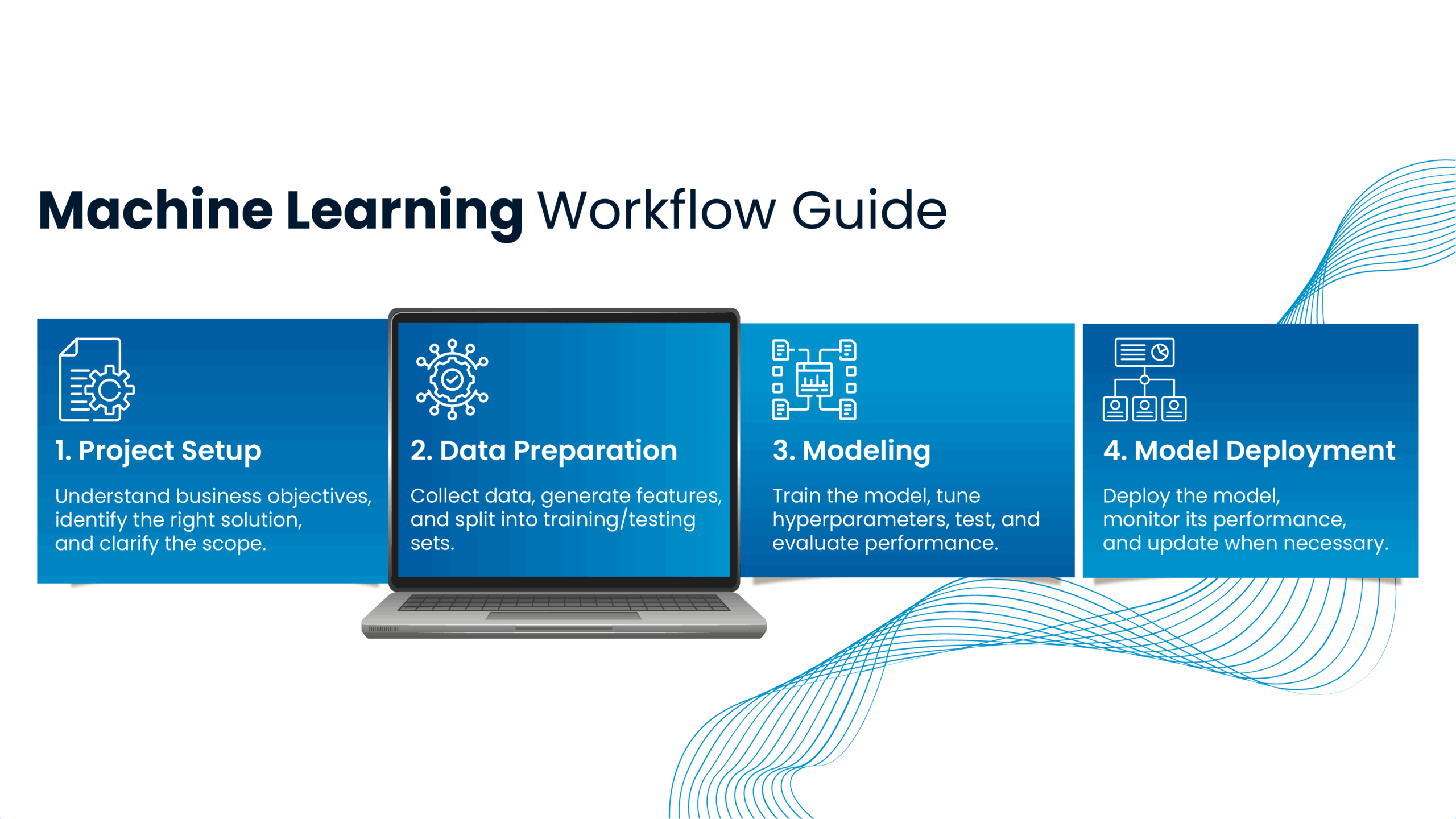What Is Machine Learning?
Machine learning (ML) is a branch of artificial intelligence that enables systems to learn from data, identify patterns, and improve their performance over time without being explicitly programmed.
By analyzing historical data, these systems generate predictions, automate decisions, and continuously refine outcomes. In simple terms, machine learning allows technology to learn from experience and adapt to changing conditions.
Why Is Machine Learning Important for Businesses?
For organizations undergoing digital transformation processes, machine learning represents a strategic advantage rather than a purely technical upgrade. Companies that adopt data-driven decision-making models become more agile, efficient, and competitive.
Key benefits for businesses include:
1. Data-Driven Decision Making (Predictive Analytics)
By analyzing historical data, predictive models help organizations identify trends and make more accurate forecasts.
2. Operational Efficiency and Automation
Repetitive and manual tasks can be automated, allowing teams to focus on higher-value and strategic work.
3. Accelerating Digital Transformation
AI-driven systems support faster and more measurable implementation of digital transformation initiatives.
4. Competitive Advantage
Hidden insights within data become visible, enabling organizations to respond to market changes more effectively.
5. Foundation of Modern AI Solutions
Many of today’s artificial intelligence applications rely on learning-based models at their core.
Where Is Machine Learning Used?
Across industries, data-driven technologies support process optimization and proactive decision-making. Common business use cases include:
Demand and sales forecasting
Inventory and stock management
Incident and problem management
Risk analysis and anomaly detection
Cybersecurity threat detection
Predictive maintenance and system reliability
These use cases help organizations move from reactive operations to a proactive management approach.

Integrating ML into IT Processes
When learning-based models are integrated into IT operations, IT teams evolve from support units into strategic contributors.
By analyzing incident data, performance metrics, and user behavior, AI-powered systems make IT service management more predictable and measurable. Advanced techniques such as deep learning are especially effective in complex IT environments, enabling early detection of anomalies and performance issues.
In addition, analyzing SLA (Service Level Agreement) and experience-level metrics together allows organizations to improve both technical performance and user satisfaction.
How IT Teams Benefit from Machine Learning
1. Improving Operational Efficiency with AIOps
AIOps (artificial intelligence operations) applies AI techniques to automate and optimize IT operations. System performance is continuously monitored, anomalies are detected early, and many issues are resolved through automated actions.
2. Advanced Threat Detection in Cybersecurity
By analyzing network behavior, learning-based models can identify unusual activity and potential threats at an early stage, enabling faster and more effective responses.
3. Proactive Maintenance and System Continuity
Predictive models analyze performance data to anticipate failures before they occur, reducing downtime and supporting business continuity.
4. Enhancing DevOps Processes
When integrated with DevOps practices, data-driven models help accelerate development cycles, improve deployment reliability, and strengthen collaboration between teams.
Making IT Service Management Smarter with Data-Driven Intelligence
In IT service management, learning-based technologies enable smarter handling of incidents, problems, and service levels.
SPIDYA ITSM analyzes operational data to help route requests to the right resolution groups and suggest solutions based on historical cases. This approach shortens resolution times and improves overall service quality.
With the Cheetah Low-Code Platform, organizations can quickly adapt and customize workflows, enabling faster implementation of AI-supported analytics without heavy development effort.
Conclusion: Building Smarter and More Predictable Operations
Machine learning is not just a technology trend; it is a key enabler of sustainable, data-driven growth. When applied to IT and service management processes, it improves efficiency while empowering teams to take on more strategic roles.
Organizations that successfully adopt these approaches gain better visibility, higher service quality, and greater adaptability in an increasingly competitive digital landscape.


